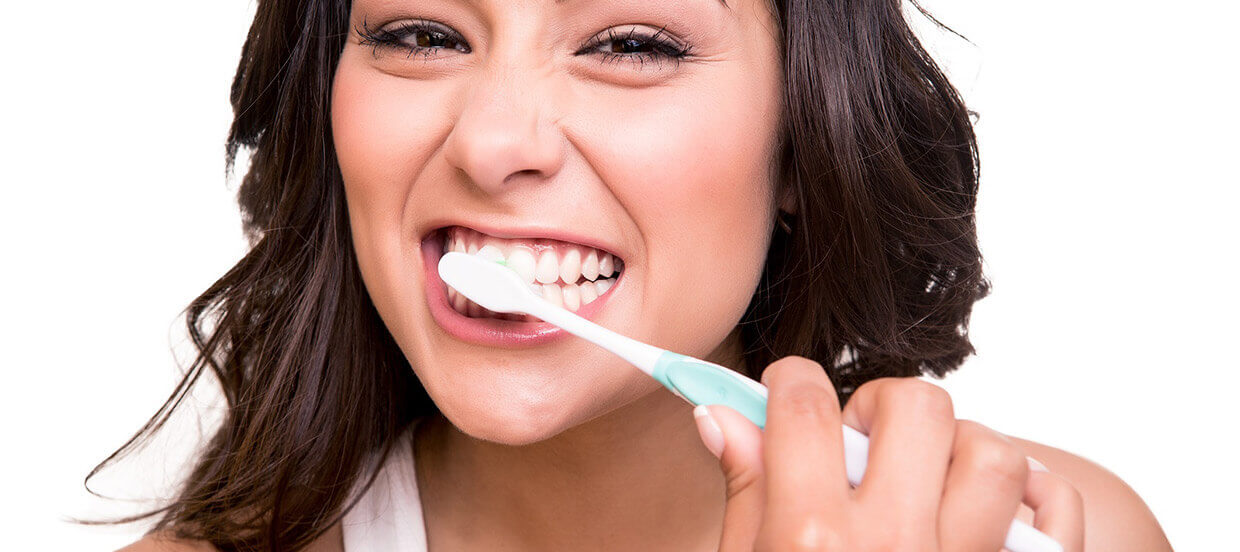
We place huge emphasis on oral hygiene maintenance because we believe that this is the foundation on which beautiful, radiant smiles are created.
Research reflects that adults over the age of 35 lose more teeth to gum diseases (periodontal disease) than from cavities. As much as three out of four adults are affected at some time in their life, but the best way to prevent cavities and periodontal disease is by daily habits of good tooth brushing and flossing techniques.Regular cleanings and oral exams ensure your teeth, gums, mouth and throat remain free of disease and other potential problems. As part of our routine we perform an oral cancer screening keeping you in best health.
Periodontal disease and decay are both caused by bacterial plaque. Plaque is a film which sticks to your teeth at the gum line, and constantly forms on your teeth. By thorough daily brushing and flossing you can remove these germs and help prevent periodontal disease.
Periodontal diseases can be accelerated by a number of different factors. However, they are mainly caused by the bacteria found in dental plaque. If not carefully removed by daily brushing and flossing, plaque hardens into a rough, porous substance known as calculus (or tartar).
Sound preventative dentistry and oral hygiene maintenance is key to achieving life long dental health.
What is Periodontal Disease?
Bacteria found in plaque produces toxins or poisons that irritate the gums, which may cause them to turn red, swell and bleed easily. If this irritation is prolonged, the gums separate from the teeth, causing pronounced pockets (spaces) to form. As periodontal diseases progress, the supporting gum tissue and bone that holds teeth in place deteriorates. If left untreated, this leads eventually to losing your teeth.The best way to prevent gum disease is effective daily brushing and flossing as well as regular professional examinations and cleanings. Unfortunately, even with the most diligent home dental care, people still can develop some form of periodontal disease. Once this disease starts, professional intervention is necessary to prevent its progress.
What other common factors effect gum health?
- Smoking
- Diabetes
- Stress
- Clenching and grinding teeth
- Medication
- Poor nutrition
How often should I see my Dentist?
Meticulous oral hygiene aids in preventing many health issues such as periodontal disease, heart disease and cancer. Oral health is directly linked to general health, and the oral cavity is connected to the rest of the human body.This is why we recommend that our patients have a professional dental check-up and cleaning once every 6 months. This will help you keep your gums healthy, your breath fresh, and teeth looking and feeling clean.
What is a dental cleaning?
Teeth cleaning is the removal of dental plaque and tartar from teeth to prevent cavities, gingivitis and gum disease. Severe gum disease causes at least one-third of adult tooth loss.Our professional cleaning services are gentle whilst meticulous at the same time. Our aim is to make your cleaning appointments routine, efficient and enjoyable.
What will a cleaning typically involve?
- Scaling:
Your teeth are cleaned of any plaque or calculus build-up to their surface by meticulous hand instrumentation and ultrasonic scaling. - Polishing:
This technique removes any stains and grit on the surface of the teeth, leaving the surface smooth without damaging its integrity. - Fluoride Treatment:
Fluoride is applied to the surface of the teeth. This helps the teeth combat decay and helps strengthen the enamel of the tooth by mineralisation.
What are the recommended methods of daily dental care?
- Brushing the teeth with a soft bristle toothbrush
- Cleaning between teeth (interdentally) using dental floss; tape; or tips
- Gargling with mouthwash for at least 1 minute
